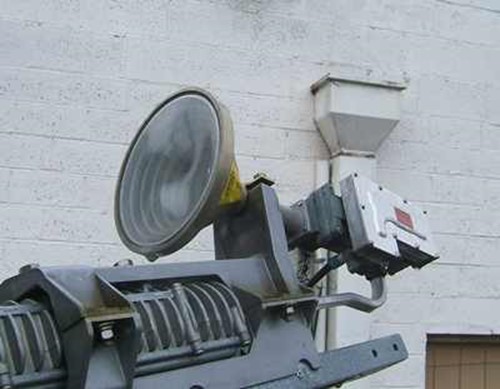Criminals in five states are using a rather creative method to spend money on stolen credit cards.
This recently caught my attention. According to the FBI, members of African criminal enterprises in Indiana, Kentucky, Ohio, Pennsylvania, and West Virginia have come up with a creative way to use stolen credit cards, and it revolves around aluminum foil.
From the FBI wire feed:
Members of African criminal enterprises are wrapping the foil around “feed horns” – the part of a satellite that captures and transmits the signal. The foil blocks the signal, interfering with credit card authorization systems. The criminals then use stolen credit cards to buy cigarettes and high value electronics. Stores commonly accept credit card transactions without validations.
What is a feed horn? It’s this thing:

Now, unless you follow the crime beat, you might be missing some context and wondering what the FBI means when they talk about African criminal enterprises.
African criminal enterprises have been developing in the U.S. since the late 80’s. They’ve been known to take on some low-level crimes from time to time, but their real trade is drugs, primarily heroin and cocaine. You’ll know them best from their financial crimes though.
From their Department of Justice profile:
Nigerian groups are famous globally for their financial frauds, which cost the U.S. alone an estimated $1 billion to $2 billion each year… Here’s just a partial list of their fraudulent activities: insurance fraud involving auto accidents; healthcare billing scams; life insurance schemes; bank, check, and credit card fraud; advance-fee schemes known as 4-1-9 letters; and document fraud to develop false identities. The advent of the Internet and e-mail have made their crimes more profitable and prevalent.”
So the thieves cover the feed horn, and then they go in and purchase whatever they can. The trick in this scam is to target smaller stores. So they’re hitting mom and pop locations, gas stations, and out of the way retail locations. The feed horns are usually on the roof, but that can be accessed rather easily, and the crews are said to be working in teams. However, sometimes the feed horns are on the side of the store wall, making them easier to access.
“When they [the store owners] remove the blocker on the roof, they realize that it was a scam, and that credit card is never validated and the people have walked out the door with the merchandise and it’s not been paid for,” commented Supervisory Special Agent Vicki Anderson in an interview on FBI This Week.
“If you’re a small business owner, you need to be aware if your credit card system is down and someone is purchasing something, you need to make sure that it’s really down and it’s not something that’s blocking your system.”
The stolen goods are transported to various locations, most notably New York, where they are pawned or sold for quick profit. Some items are shipped back to Africa. The object is to purchase smaller, easily sold or exchanged items.
So, the question then, why would a shop owner process credit card transactions without authorization? Because sometimes batch processing is slow, and if there is a decent enough volume, it can take time. So rather than risk a sale, the store will finish the transaction anyway. It’s a known risk, one the shop owner assumes.
There’s another aspect to this as well, the locations being targeted are states where people are more trusting and friendly, a trait that scammers love to take advantage of.
Via: csoonline




Leave a Reply